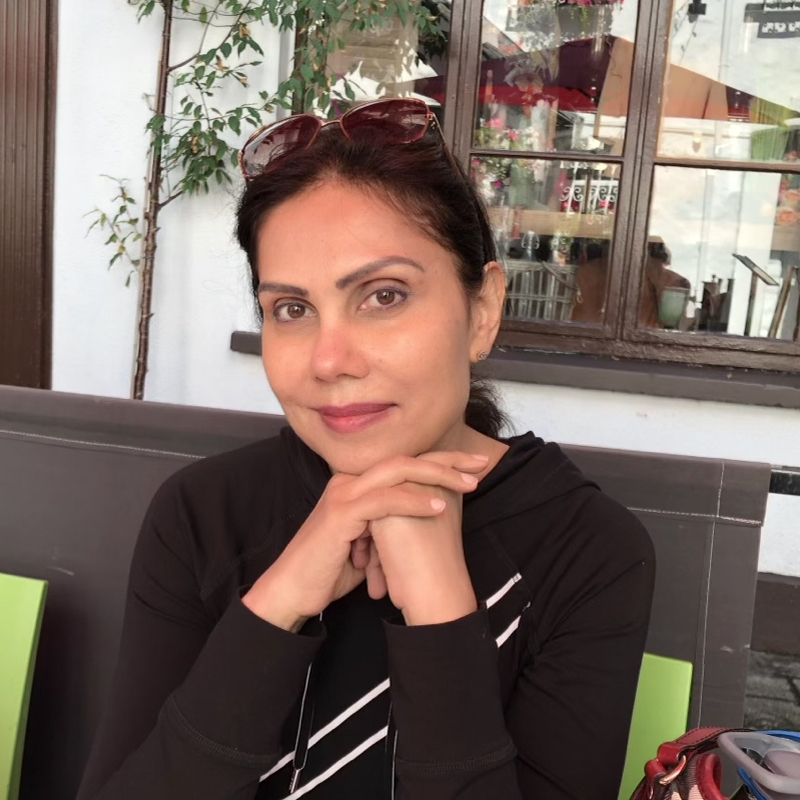
What Makes Us Who We Are by Gulrukh Syed
.
What makes us who we are? How do we find ourselves?
Over the last few months, I have allowed myself to pause a little and introspect, to understand my own mind. I guess the pandemic and a few major changes in my relationships have forced me to do so. Although initially the events of 2020 felt miserable and depressing, now that I think about it, this year has been a personal eye-opener for me.
My whole life I have been holding back, feeling like I cannot let go. I have restrained myself, as if I didn’t have the space to fully express my existence. I have been living with two selves: one that’s inside, hidden from the world, and one that’s on the outside and which I choose to share with others. I sometimes wonder which one is the real ‘me.’ What is my authentic self?
What makes us who we are anyway? For example, why am I so different from my siblings even though we grew up in the same family?
The first question I’ve been asking myself is: who am I?
I know that the real me is the self I keep inside, that represents my inner truth. Fear of rejection and judgment makes me hide my true self and pretend to be someone I’m not. Many of us live our whole lives like this. We are all trying to adjust to our social and cultural context and fit in. Our entire identity is based on being accepted. But does this adaptation to societal norms make us rejection-proof and happy? No, it does not. We all experience dismissal, in some form or another. It can make us feel inadequate and unworthy. We begin to crave acceptance from a very early age. But no matter how much we try to be included, there are no guarantees of success. So why not embody and embrace who we truly are?
If we don’t align our inner self with our outer self, we can never be free. I know now that I have nothing to lose really. Since life is neither static nor eternal, why not decide to be transparent and free?
The pandemic made me pause and take a break from the constant chasing.
The second question I’ve been asking myself is: why am I who I am?
There are no two human beings who are identical to each other, even identical twins have some differences genetically and in personality. What makes us unique? Facts and theories attempt to explain such disparities. There is the famous nature vs. nurture debate, with nature meaning inheritance of genetic material from our parents, and nurture alluding to the environment in which we are brought up. But does the interplay between nature and nurture explain all our differences completely?
I don’t think so. I grew up with siblings very different from me. We lived in the same home, with the same parents, and same upbringing. Yet siblings in one family can be quiet, reserved and introverted, or they can be expressive and extroverted. Some can be artists and poets, while others might have zero interest in intellectual pursuits, even though they share the same nature and nurture.
It is with all these questions that I started looking into the theory of reincarnation. According to Hindu beliefs, we are souls that never die. We are born in a new body, every time we re-emerge after a biological death. Our bodies are costumes, and our souls travel from one life to the next. Who we are and what energy we carry are a product of previous lives and experiences. We are responsible for the future we construct, by virtue of the decisions we make in the present. Our heaven and hell both exist here on earth. By doing good deeds, we can improve our reincarnated lives and also create a better world around us.
Although 2020 has been a tough year for most of us, we all got to see ourselves and our communities in a different light. The pandemic made me pause and take a break from the constant chasing. I lost significant friendships, I lost my comfort zone, and initially I reacted with hurt and resentment, which only intensified the pain. I was compelled to pay attention to my innermost thoughts and emotions, and reorganize my life. I made time to meditate, read and evolve emotionally, in spite of the busy-ness of work and family responsibilities. Sometimes external turbulence can make us stop and think, it can make us go deeper into ourselves. This self-knowledge produces fortitude, but it is also the first step towards treating others with compassion and empathy.
◊
Photograph by Jahanzeb Syed
All audio, text and images are under copyright © Neelum Films LLC






Leave a comment